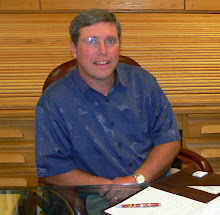
We had the DeLong family Matriarch Ella Rose who is certainly spry for her advancing years. Having lost a husband, son and grandson in the last few months, she nonetheless inspired us with her cheer!


We had several opportunities to sing to complete strangers as the missionaries were good to introduce us to their friends.


Part of the reward is seeing the look on people's faces when we surprise them. Mostly smiles and sometimes even a few tears! Always we leave being the most rewarded for having done it!

Christmas carols today carry connotations of ancient traditions as old as King Wenceslas, but Christmas caroling as we know it dates back to the 19th Century and not much further. In fact, caroling itself didn't always involve Christmas, and the ancient tradition of traveling from house to house to wish neighbors good cheer didn't always involve singing.
The act of traveling to different homes comes from a different tradition altogether, albeit a similarly ancient one. In England, the word wassail — derived from the Old Norse ves heill meaning "be well, and in good health" — came to mean the wishing of good fortune on your neighbors. No one is quite sure when the custom began, but it did give us the song, "Here We Come-A-Wassailing" — sung as carolers wished good cheer to their neighbors in hopes of getting a gift in return. ("A Wassailing" also evolved into the popular "We Wish You a Merry Christmas" — its last verse, "Bring us some figgy pudding" stems from the wassailers' original intent.)

The two traditions of singing and visiting first merged in Victorian England, as church carols began to merge with Christian folk music. At that time, it was far from a Christmas tradition; festivals like May Day were deemed worthy of caroling, too, but the repertoire as well as early records of this are pretty unclear. In the 19th Century, as Christmas became more commercialized and popular, publishers began churning out anthologies of carols, many which were ancient hymns, also circulating them in broadsheets.
Many of our today's most popular carols date to this period. Christmas Carols Ancient and Modern published in London by British lawyer William B. Sandys in 1833, was the first to print "God Rest Ye Merry Gentlemen," "The First Noel" and "Hark! the Herald Angels Sing." "Joy to the World" first appeared in the Anglican Church hymnal Hymns Ancient and Modern in 1861. Composed by Isaac Watts, known as the "father of Englsh hymnody", the song actually wasn't written exclusively for singing at Christmastime. Charles Wesley's "Hark the Herald Angels Sing" was originally "Hark! How All The Welkin Rings!" (Welkin means sky or heaven, and came to mean making a loud sound.)
The Oxford Book of Carols, first published in 1928, was a landmark book that combined medieval carols, folk songs and Christmas songs from around the world, publishing 201 of them in a 700-page volume. An updated version, the New Oxford Book of Carols, was published in 1992.

Ok, this person is what is known as a CREDOER. That is a person who is a member of Credo, the young adult group meeting and serving together in the Beaverton Oregon West Stake. This last week Credo had the chance to visit and sing a bunch of Christmas Carol's for the residents and staff at Rosewood Retirement Center in Aloha.

Not much excitement at the beginning of our visit. Note that not a single chair is occupied. Were were in fact singing to an empty reception room.

It didn't take long though, and soon they arrived on foot, behind walkers, and in wheelchairs.

We literally were playing to a packed house! They were singing with us, and several commented on how it brought back memories of their childhood, homes and families.

I am grateful for the chance to associate with and to have shared the feeling of being with so many who have seen so much. The "spirit" of Christmas was really alive here!














